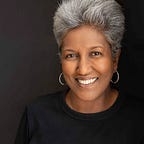Sue Gilbey: Peace Activist, Environmentalist, Storyteller & Nana
“People put so much effort into remaining ignorant but once you see things as they really are, you can’t un-see them.” ~Sue Gilbey
We have come to visit Sue to be interviewed for a program ‘A Peace of the Action’ which she produces on community radio. After we are done, I ask if I can interview her. The little we have glimpsed of Sue, tells me she has an interesting story to tell. Sue Gilbey was born in Auburn (a suburb of Sydney) in 1951 but grew up in Adelaide, where the family moved when she was four. Having lived in many places around Australia Sue has now come back to live in Adelaide. She loves her life in this very walkable city because she feels you can know people here in a way that is not possible in Sydney.
Sue was a pacifist and at 17 she marched against the Vietnam War. She was arrested when an unfortunate set of circumstances resulted in the peaceful protest turning ugly. She spent some time in police custody before her aunt bailed her out.
Sue ran away from home.
She hitchhiked her way around the country and ended up working at a Roadhouse in Barry Caves, east of Tenant Creek, on the Barkly Highway. While working there, she met and married an Indigenous man from Alywarra country, with whom she had two girls. None of her family came to their wedding. Sue’s husband was a stockman, who worked on cattle stations. Their life together took her to many outback stations in QLD and the Northern Territory from the Gulf of Carpentaria to areas north of Birdsville.
Sue had many interesting experiences during this time but recalls quite vividly the floods of 1976 in the Channel Country. Her youngest was just six months old and her older daughter three. They were flood bound for 6 months and she remembers the intense feeling of isolation when she climbed up to the highest point and surveyed the land, now covered in water as far as her eye could see in all directions. The monotony of the scene was only occasionally broken by a tree that poked out of the floodwaters with a dead cow or flood debris hanging from it. It is hard to imagine the feeling of aloneness she must have felt as a young mother. They had moved the cattle to high ground so when their provisions ran out, all they had left to eat was meat. She reflects on the memories, “meat, meat and more meat”, she says, “it was enough to drive you crazy!” It was one of the hardest experiences of her life and she remembers her craving for cabbage at the time!
As the kids got older they moved to Adelaide because she wanted to give them a traditional education rather than relying solely on the School of the Air. Having spent all his life in the bush, Adelaide just did not appeal to her husband and they split up. She brought up the girls as a single mum and after her daughters had grown up, she volunteered in Cambodia as an administrator in an Orphanage for abandoned children, training the Khmer staff. She remembers it as the best of times and the worst of times.
Sue came back to Australia and resumed her career in the disability sector for some time and then bought a restaurant, having learnt to cook while working at the various cattle stations. Unfortunately, she had a series of accidents resulting in a permanent disability, which ultimately led to her selling the restaurant. Ironically, Sue had studied and obtained a bachelors degree in Developmental Disabilities and worked in the field for 25 years. Now for the first time, she began to understand what it meant to be disabled.
A hard year followed but then Sue joined the Peace Movement. She built up a reputation as a human rights speaker and has been invited to speak in over 18 countries. Working with the local people and being able to contribute has been immensely rewarding for her. Her travels have taken her to places such as Guam, Bangladesh, Bolivia, Venezuela, Colombia, Peru, Chile, Argentina, the USA and Germany.
Sue has also worked extensively to support refugees. She is proud of the many people in Adelaide who collaborated with human rights lawyers who were engaged in pro bono work to help refugees plead their cases. She transcribed hundreds of refugee review tribunals and remembers that many of the people she worked with, went on to settle here and get their citizenship. When John Howard introduced policies that prohibited refugees from accessing legal aid, the lawyers trained Sue and others as paralegals to represent refugees in court.
She won an International Peace Prize — The Bremen Peace Prize — as a result of her work.
Sue says an amazing people’s movement was created through the work of helping refugees. It was an example of what could be achieved through people collaborating with each other and recalls that it was incredibly inspirational to be involved in such work.
It was a chance meeting with Paul Downton that got her involved in Urban Ecology and the Christie Walk co-housing project where she now lives. She is passionate about living lightly on the earth and enjoys the community feel of the place she calls home. She also loves writing and is currently engaged in writing four separate books including her memoirs.
The community network Sue has built around her and the many projects she contributes to inspire us. I sense that her life is full and deeply satisfying and is an example of what can be achieved by one person.
